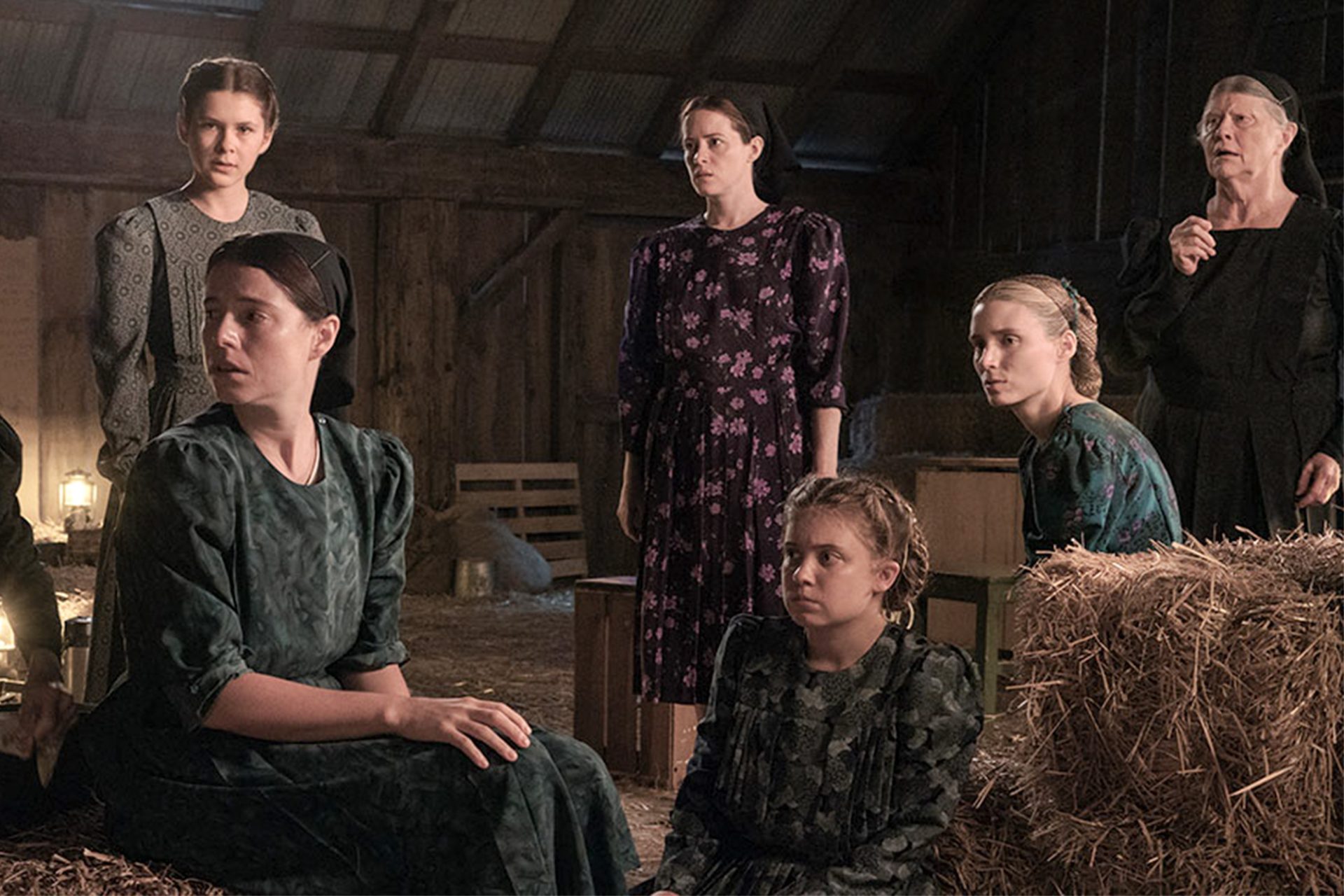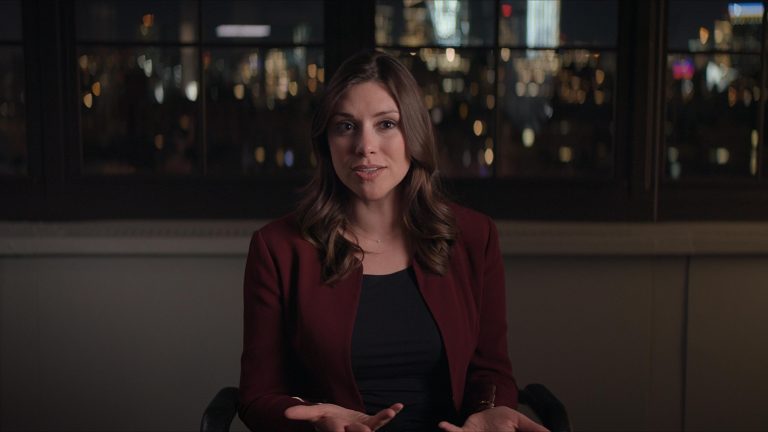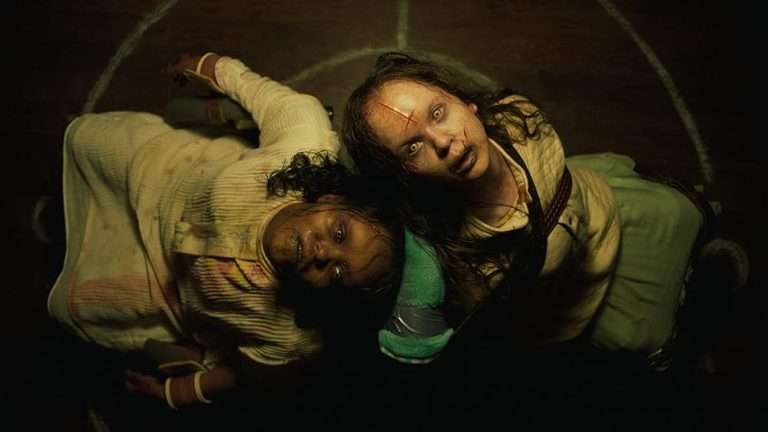Women Talking (2022) Movie: Ending Explained & Themes Analysed: The Oscar-nominated movie Women Talking pans out like a feminist revisionist tale. The story springs out of a horrifying true story from 2011, in which seven men from an ultra-conservative Mennonite colony in Bolivia (populated by the descendants of the Eastern Europeans who settled there in 1874) were convicted of drugging and serially raping over 100 women from their community.
In 2018, Canadian author Miriam Toews, who was raised in a small Mennonite town in Manitoba, published her novel Women Talking, in which eight women from a fictional Mennonite community meet in a hayloft to debate their response to a similar series of crimes. Should they do nothing, stay and fight, or leave the only home they know? While pondering over a decision, the women argue about the nature of evil, the limits of forgiveness, and the meaning of faith, interspersing their intellectual debate with rage, panic, cruelty, and even laughter.
The movie Women Talking, directed by Sarah Polley, follows the novel in many ways, capturing both its emotional desolation and flashes of humor. But Polley and her magnificent cast have brought their own imaginations to this nearly unimaginable story, and their distinctive telling has its own power. With a cast that includes Rooney Mara, Jessie Buckley, Claire Foy, Ben Whishaw, and Frances McDormand (in a tiny but thematically crucial role), she tells a story that’s about learning to unlearn oppression, about embracing freedom after violence. The movie is narrated, in voiceover, by a grown-up version of Autje (Kate Hallett), one of the two teenagers who take part in the hayloft debate. She addresses her narration to a child conceived but not yet born during the movie’s events.
Women Talking (2022) Movie: Ending Explained
The women resolve to leave in order to protect their children, remain faithful to their faith, and exercise their right to free thought. They want to take boys who are under 15 years old with them, but they will not compel any males older than 12 to join them.
Melvin informs Salome (Claire Foy) that her teenage son Aaron has bolted and hidden before they can depart. Aaron is put to sleep by Salome, who then carries him away. When she tells August (Ben Winshaw), he begs Salome to take care of Ona (Rooney Mara) and promises to teach the boys how to behave in order to stop any additional fighting. Scarface (Frances McDormand) and August watch as the women leave while Helena and Anna follow the others.
Women Talking (2022) Movie: Themes Analyzed
Religious Orthodoxy and Sex education
In Sarah Polley’s film, orthodox Christianity rules over women’s lives, and they endure male torture while remaining mute.
The elders of the colony dismiss the sexual abuse that the women endure while unconscious as violence perpetrated by some lowlife. The males are detained once the women locate a man who is about to impose himself on the unconscious victims.
The elders’ initial response to the women is to threaten them with exclusion from the Gates of Paradise if they don’t pardon the perpetrators. The cruel irony in this statement is that the Lord’s wrath is feared by the women who are routinely violated rather than the males who cause them such suffering. Scarface Janz and other remnants of the past are no longer present. While the younger ones verge free from the chains. The women alter religious regulations and opt for pacifism. The guys are a rowdy group who act like wild animals from an early age, fighting and teasing one another.
Young boys and girls are so far apart that the guys are ignorant of women and their bodies, and they mindlessly imitate their elders who have abused women for years. The lack of sex education leaves them immature in the brain, despite the growth of their body, and they do not consider the wrongs of sexually assaulting a woman because they’re never taught the same. The mothers are equally illiterate in the field because they lack the language to teach their sons that men shouldn’t view women as objects to satisfy their sexual urges. Instead, they quietly choose to forgive over and over again.
Female Imagination
Early in “Women Talking,” a title card calls the film “an act of female imagination.” This is true not only because the movie is fictitious but also because the ladies are daring to conceive their own vision of a better society. The women come up to August and beg him to take a moment and explicitly write things down so they may express what they want from life. This narrative technique gives the movie additional impact while also fulfilling a specific purpose in terms of how the women evaluate their current condition in order to make a choice about the future.
Here’s how director Sarah Polley explains what this means and how it impacts the film’s message: “When there are words for something, it changes the nature of what you’re doing yourself in terms of interpretation of your own actions,” The film’s act of feminine imagination is their consideration and choice to leave, even if the plot is based on a real incidence. It’s challenging to picture abandoning the very system that enabled such violence when rape occurs. But, Ona, Salome, Mariche, and the other women dare to picture a life devoid of terror and violence, a time when they can live their own lives without being directly affected by the memories of what happened to them and the men whose deeds will have no lasting effects.
Faith and Forgiveness
The ending of Women Talking is rather straightforward. There are many generational themes in the film. August and Ona’s love is strong, and they would be nurturing parents to their child—but they must each sacrifice for humanity’s advancement. This dynamic plays into the conversation between Salome and August as well. Salome encourages August to remain alive, to be hopeful that he can make a difference in these boys’ lives. Salome understands the cruel irony of using the tranquilizer on her own son. But the pain of the moment will be eclipsed by Aaron’s ability to grow up in an honest, nurturing environment.
August tries to give the notes to Salome, but he leaves them with him and, thus, with the men in the audience. While the women of the film certainly have their disagreements about how to handle the situation, they all inherently understand the gravity of it. Thus August’s viewing of it was essential. It’s a call for empathy. The final component of understanding the end of Women Talking involves Scarface’s daughter and granddaughter, who defy Scarface’s wishes and join the women fleeing the colony. Scarface and her family, who have voted to remain in the colony and do nothing, initially leave the meeting because they believe the inability to forgive the colony’s men would result in their banishment from heaven.
The group discusses the difficulty of accepting a set of religious rules that govern your life and how tough it is to accept God’s methods in order to bring everything back to the themes of forgiveness and faith. While we strive to live to the finest standards possible, these problems will continually afflict humanity. Scarface’s daughter and granddaughter leave, but they make one thing clear: they don’t want to accept their inevitable fate. They ultimately decide to advance with civilization and reject to stand still like Scarface.
Ona and August’s Future
Since the women are assembled in the barn to decide their future, it becomes clear that Ona is the most optimistic of the bunch. She debates whether to leave or fight at various points. Eventually, she wants to create an environment where the women can determine their own futures collectively, guided by their shared faith and love for each other. Even in adversity and after getting shouted at, Ona doesn’t give up on her desires and on August. August is a complicated figure in the colony. Unlike most other members of the group, he ventured out into the world, where he went to college and studied so he could “serve a purpose” as the colony’s schoolteacher. He also carries Ona in his heart, and it’s clear that he wishes life were different so they could be together.
Near the end of the film, as the women prepare to leave, August reveals to Salome that he’s been carrying a gun, and though he passes it to her, it’s clear that at one point, he was considering using it to take his own life so the men of the colony wouldn’t punish him. Salome’s kindness, and the promise of a potential reunion with Ona, keep him going, even if it’s unclear when and how he’ll reunite with the women. August and Ona’s love for each other is deeply felt throughout Women Talking. However, the film ends with them parting ways. Ona leaves the Mennonite colony with the other women, and August stays behind to continue teaching.
Considering August has lived outside of the community before, it’s possible he may choose to do so again. If he manages to find where the women have settled, they could be reunited at last. In the end, we know that Ona ventures out into the world with the rest of the women, bidding goodbye to August for the moment, and that she has the baby she was carrying throughout the film. While the child is a product of rape, she nevertheless chooses to keep and love it. The film does not tell us if Ona achieves her dream of a new community, but based on her spirit and determination, she probably never stops trying. While it’s unclear if Ona would want a romantic relationship, August could go searching for Ona at some point in the future.
Related Read: Catherine Called Birdy (2022): Movie Review & Ending, Explained
Women Talking (2022) Movie Links – IMDb, Rotten Tomatoes
Women Talking (2022) Movie Cast – Rooney Mara, Claire Foy, Jessie Buckley


![Forty Winks [2022] Review – A visually distinctive but inert debut feature that has nothing to say](https://79468c92.delivery.rocketcdn.me/wp-content/uploads/2022/09/Forty-Winks-2022-Movie-Review-768x429.jpg)
![Ananta (The Eternal) [2022]: ‘KIFF’ Review – Turgid, Lifeless & bereft of a fundamental clarity](https://79468c92.delivery.rocketcdn.me/wp-content/uploads/2022/05/Ananta-The-Eternal-KIFF-Movie-Review-1-768x503.jpg)



![Sunday [2020]: ‘Short Film’ Review – Queering the narrative of the ‘regular neighbourhood uncle’ figure](https://79468c92.delivery.rocketcdn.me/wp-content/uploads/2021/04/Sunday-Short-Film-768x480.jpg)